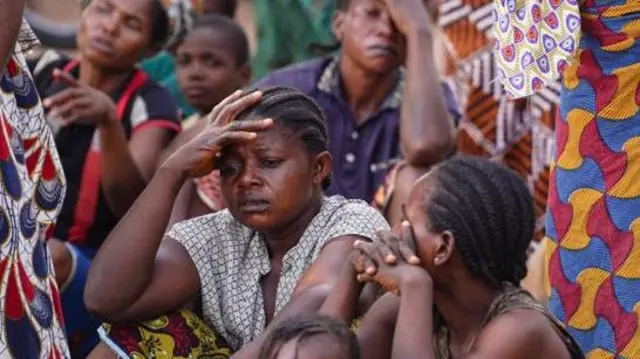By David Usher
The recurring bloodshed in Benue State is not a political fabrication—it is a dire and escalating security crisis that deserves unflinching national attention. To dismiss the killings, displacements, and terror unleashed on Benue communities as “political,” as President Bola Ahmed Tinubu reportedly did, is not only inaccurate—it is a grave injustice to the victims and a dangerous abdication of presidential responsibility.
This is not politics. This is terrorism. It is criminality weaponized. It is ethnic cleansing masked as communal clashes. It is the calculated desecration of a people’s right to exist in their ancestral homes. And it demands a decisive response from the Commander-in-Chief—not rhetorical dismissal.
In the words of Frederick Douglass, the great abolitionist, “Find out just what any people will quietly submit to, and you have found out the exact measure of injustice and wrong which will be imposed upon them.” The people of Benue have submitted too long to silence, abandonment, and the slow violence of state inaction. Each day of government deflection brings us closer to normalizing impunity.
Since 2013, and more severely from 2018 onwards, attacks on Benue communities have claimed thousands of lives. Entire villages have been razed, farmers forced from their lands, and Internally Displaced Persons (IDP) camps have become permanent settlements. Reports from NGOs and local authorities consistently cite armed herders, sometimes supported by foreign militia elements, as perpetrators. Yet federal responses remain slow, insufficient, and often tone-deaf.
The claim that these attacks are merely “political” overlooks the lived horror of mass graves in Guma, the endless streams of refugees in Agatu, and the orphaned children of Logo. What sort of politics produces bullet wounds and burning farms? When did politics become a justification for failing to act against terror?
Chief Obafemi Awolowo once said, “It is better to lose power than to lose the capacity to speak truth to power.” It is in this spirit that we must challenge not only the President’s assertions but the broader institutional lethargy that has allowed Benue’s agony to persist.
What Benue faces is not a security challenge in abstraction—it is a threat to Nigeria’s sovereignty. It is the erosion of the state’s monopoly on violence, replaced by roving militias who kill without consequence. It is a test of whether our constitutional guarantees—of life, dignity, and property—mean anything outside Abuja.
We call on the President to countermand all forces and intelligence agencies under his authority to prioritize the defense of Benue State. A coordinated, intelligence-led security operation must be launched to disarm militias, secure rural communities, and dismantle armed encampments in forests and borderlands.
But military action alone is not enough. The government must also:
Establish a special tribunal to investigate and prosecute the masterminds of the Benue massacres;
Provide comprehensive compensation and resettlement support for displaced communities;
Implement the National Livestock Transformation Plan in a way that respects land rights and local autonomy;
Strengthen community policing and empower state governments to protect their people;
Include Benue representatives in national security councils and strategic response teams.
Anything less would amount to state-sanctioned complicity in the suffering of millions.
It is not political to demand safety. It is constitutional. It is not political to cry for justice. It is moral. And it is not political to insist that the President act. It is his oath, his duty, and his moment to lead.
In closing, let us remember the words of Frederick Douglass again: “Power concedes nothing without a demand. It never did and it never will.” Benue is not begging for favors—it is demanding what is right.
We must all raise our voices—not for politics, but for peace, justice, and the soul of the Nigerian nation.


